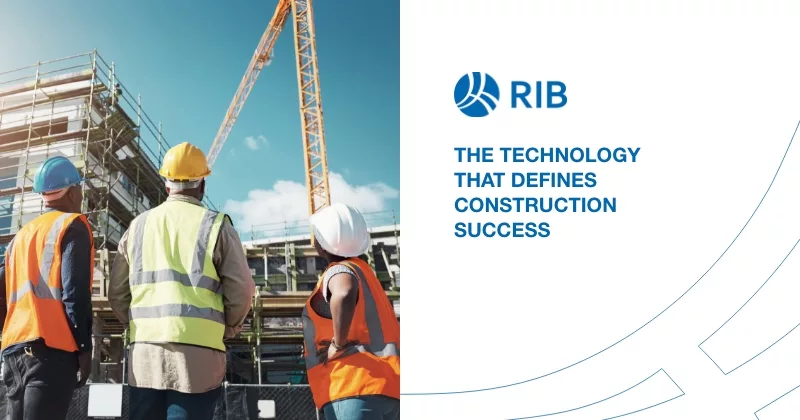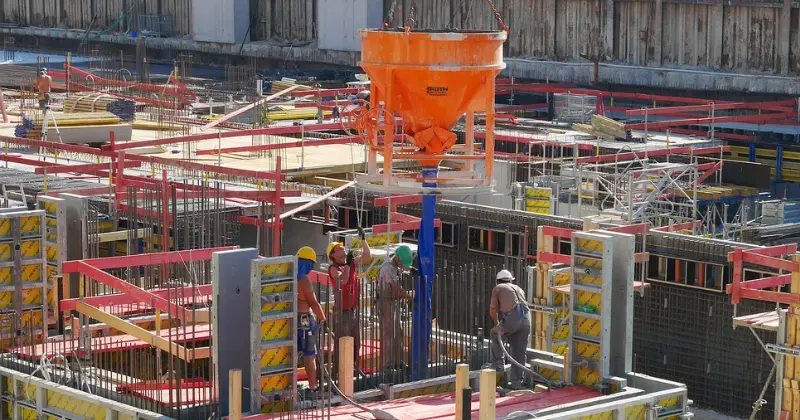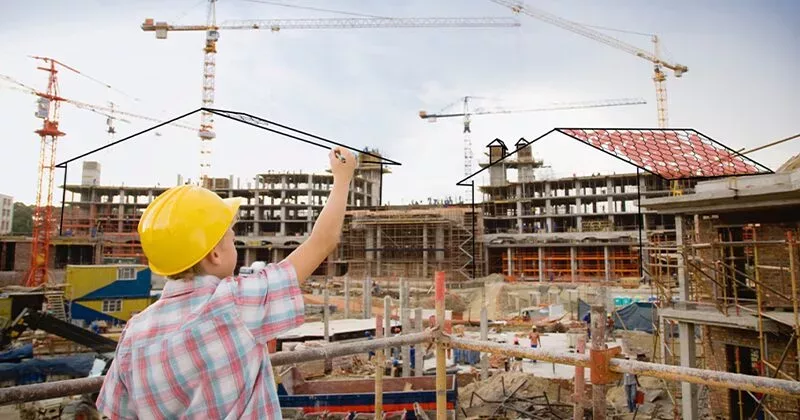11 mins read
Understanding the Importance and Types of Construction Warranties

Warranties are commonly used to safeguard the purchase of automobiles, electronics, heavy equipment, and other high-ticket items, providing buyers with comfort and security. A construction warranty is consistent with this purpose, but the industry’s complexity and diversity of projects have led to more variation in warranty types, terms, and conditions that require further exploration.
What Is a Construction Warranty?
A construction warranty is a written agreement made by a contractor or construction company to replace or repair any defective work after a project concludes. Warranties are typically limited to a predetermined duration and may include exemptions for certain items.
If the duration of the warranty is not specified in the contract, the statute of limitations for contract breaches and “right to cure” for the relevant state may come into play. When warranties are found to be breached, the client or project owner may also collect monetary damages based on the value of defective items and other recovery costs.
Construction warranty vs. guarantee
Construction warranties are often confused with guarantees, but there are subtle differences between the two concepts. A guarantee is a broader provision that requires the completed work to be performed as intended and meet certain standards. A construction guarantee typically contains fewer specific conditions and is less likely to reference a duration or expiration date. Additional differences between warranties and guarantees include:
- Warranties list (or explicitly omit) specific defect types and conditions
- Guarantees are typically considered less binding and enforceable
- Warranties usually require the contractor (not a third party) to resolve claims personally
Who is Responsible for Construction Warranties?
As the decision maker on both direct and subcontracted work standards, the general contractor is ultimately responsible for meeting the terms of the warranty. The contractor who purchased the original materials assumes responsibility for the quality and durability of these items and has more leverage with suppliers to request replacements or refunds if materials are later found to be sub-standard.
Extended warranties (10 years or longer) are one common exception to this general rule of thumb. For example, siding or shingles that fail before their guaranteed lifespan is completed should be replaced by their manufacturer unless improper installation by the contractor was the root cause of the failure.
What is the Importance of Construction Warranties?
Construction warranties are extremely important since they protect clients from the financial obligations of repair and replacement tasks after the work (or entire project) is completed and signed off. By extension, a contractor warranty instills confidence in materials and workmanship that can be passed on to future owners and occupants of the building.
Warranties also provide a sense of accountability that comes from long-term quality commitments. During the project, specific warranty terms help contractors set priorities for inspection intervals and material standards to minimize the risk of failure. Once the project is completed, a detailed warranty helps to streamline the process of handling defects or repairs with minimal delays. The result of these benefits is a transparent client-contractor relationship that can lead to repeat assignments and positive feedback.
Types of Warranty in Construction Projects

In general, construction warranties are classified as either explicit or implicit. An explicit warranty is written as part of the construction contract documents. An implicit warranty is not formally stated but is implied through common law based on universal expectations for workmanship, material suitability, and other basic requirements. Both explicit and implicit warranties can be enforceable. Additional types of construction warranties fall within these two broad categories.
Explicit warranties:
- Material and equipment warranty
This type of warranty describes how materials and equipment should align with the design intent while remaining functional and free from defects. In cases of non-conformance, the contractor becomes responsible for performing or arranging for service, repair, or replacement. Material and equipment warranties can cover everything from bricks, mortar, and steel to installed electrical panels and HVAC equipment.
- Callback warranty
The term “callback” refers to a contractor’s availability to return to the job site for repair or replacement work for a specified period (typically one year). Callback warranties incentivize contractors to perform high-quality work since returning to a job site can present logistical and financial challenges once they have moved on to their next project. While there is some overlap with material and equipment warranties, the callback warranty is tied to the physical presence of contractors rather than material replacement expenses.
- Design-build warranty
A design-build warranty differs from other explicit warranties in that it safeguards professional services, including engineering and architecture. Items and requirements that might be included in a design-build warranty include:
- Conformance to design specifications, codes, and regulatory standards
- The structural integrity of the framing, foundation, and other load-bearing elements
- Agreed-upon energy efficiency requirements for green designs
- Exclusions for natural disasters and other unforeseen events
Contractors or construction companies are only responsible for upholding the conditions of a design-build warranty when they perform both the initial design and project construction tasks.
Implicit warranties:
- Workmanship warranty
In almost any region or jurisdiction, the implied condition of most construction contracts is that construction services be performed in a workmanlike manner. This term refers to the quality of work being consistent with someone possessing the knowledge, training, and experience necessary to complete the task successfully. The presence of defects or errors might indicate that the task was not completed in a workmanlike manner, and the contractor is liable for corrections.
- Habitability warranty
A building warranty related to habitability, usually applicable to new residential construction projects, dictates that the completed project will be suitable for its intended purpose (resident occupancy). Problems and defects that can lead to non-conformance with habitability warranties include roof leaks, defective septic systems, foul odors related to construction, and other conditions that might make it difficult or impossible to live in the building. Some jurisdictions extend habitability warranties to resold properties, while others limit their application to new buildings.
- Vendor literature warranty
Implicit warranties related to the datasheets, manuals, and other official documentation vendors provide fall into the vendor literature warranty category. These documents may include claims regarding the lifespan, maintenance, or usage of the materials that should be backed up by the manufacturer (not the contractor) if the products fail to meet expectations. For example, a shingle supplier with a 20-year product life in their brochure might be implicitly liable to replace shingles that fail after 5 years.
What Are the Consequences of Breaching a Contractor Warranty?

Construction warranties are legally binding provisions that both parties must take seriously. This is why most contractors make a concerted effort to meet or exceed the terms of their agreements and prevent unexpected damage or failure that may lead the client to enact warranty conditions. Breaching a contractor warranty can lead to various negative repercussions.
Financial liability
The most obvious and potentially damaging consequence of a breached contract is the monetary responsibility for correcting the problem. In some cases, this obligation can be more costly than the original work. For example, if substandard materials and poor workmanship by a contractor led to a collapsed roof, they may be liable for replacing the roof itself as well as repairs to other parts of the building that were damaged.
Insurance claims
A warranty breach can also impact insurance coverage for contractors, with claims contributing to higher premiums or potential denial of coverage based on repeated breaches. While insurance is mandatory and offers a level of comfort and protection, many liability policies exclude coverage for faulty workmanship issues or material substitution, leaving the contractor without much-needed funds to help defray repair and rework expenses.
Reputation damage
Even when a building warranty breach is not contested by the contractor, they can still suffer damage to their reputation through association with poor work quality. This may lead to a negative perception or lack of trust with current clients and poor word-of-mouth that impacts future business opportunities.
The Magnuson-Moss Warranty Act
This US federal law, enacted in 1975, protects both contractors and clients from many issues related to third-party materials by setting minimum conditions for any product under warranty, regardless of how the document is worded. Items like siding, storm windows, appliances, and flooring can still be sold “as is,” but if warranties are provided, purchasers are entitled to refunds, repairs, or replacement of defective materials.
Conclusion
A construction warranty is much more than a formality since a structure’s quality and durability remain important years after work has been completed. Construction software solutions make it easier to plan, document, and collaborate on warranty issues throughout a building’s lifecycle.
RIB Software expedites warranty issue resolution with advanced cloud-based tools for commissioning and handover, business intelligence, procurement, maintenance, and project management. Our solutions empower teams worldwide to transform the way they design, construct, and manage projects. Get your demo today and discover the benefits for yourself!
Most Recent
11 mins read
10 mins read
10 mins read
29 mins read
Blog Categories

Ebook











